Finding the right tools is the best way to set your company up for growth and success. However, as a small business, it can feel like your options are limited.
Fortunately, there are plenty of world-class tools that cater to the unique needs (and budgets) of brand-new businesses. By being a savvy shopper, there’s no reason you can’t access the same features and firepower as established enterprises.
In this post, we’ll share advice on how to find the best software for your startup. We’ll then suggest four of our favorite tools for small businesses just starting out. Let’s dive in!
How to Choose the Best Tools for Your Small Business
As a new business, it’s essential that you catch the attention of potential new customers, convert them into qualified leads, and ultimately secure your first sales. To achieve all of this, you’ll need the right tools.
However, as a brand-new business, you may initially be working to a tight budget. To minimize your running costs, you might want to try free software over premium options. Some proprietary tools even offer entry-level or free plans with usage restrictions.
For example, the popular Mailchimp marketing automation platform is free for up to 2,000 contacts:
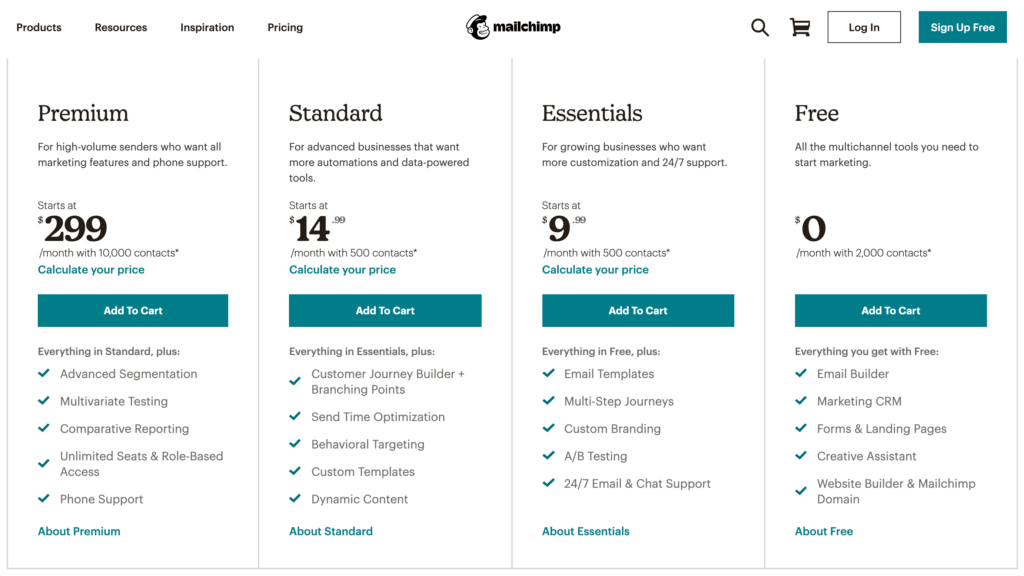
Another example is the Hootsuite social media management platform. This marketing tool has a single-user plan that’s perfect for solo entrepreneurs.
For small businesses just starting out, these plans provide access to professional tools without requiring you to pay top dollar for features you don’t currently need.
And the majority of these tools are scalable. As your business grows, you can upgrade to a more expensive plan without the added stress and worry associated with learning a new tool or migrating all of your data.
With almost 31.7 million small businesses in the U.S., it’s no surprise there are plenty of tools specifically catering to startups. To make sure you’re getting exactly the features you need, you may want to opt for tools that target smaller businesses rather than a general user base.
4 Top Tools for Small Businesses Just Starting Out
According to the Bureau of Labor Statistics, 20% of startups don’t make it to their first birthdays. Let’s give your business the best possible chance of bucking the trend!
Here are four tools that can set your brand-new venture up for success.
1. Yoast SEO

When you launch a business website, your traffic will be a flat zero. The quickest way to get off the starting block is to appeal to search engines.
With over 53% of all web traffic originating from organic search, a solid search engine optimization (SEO) strategy can take you from zero to hundreds (or even thousands) of eager customers.
Yoast SEO has everything you need to optimize your business website for those all-important search engines. Every time you add a new page or post, you can use Yoast SEO to specify the keyword(s) that you want this content to rank for:
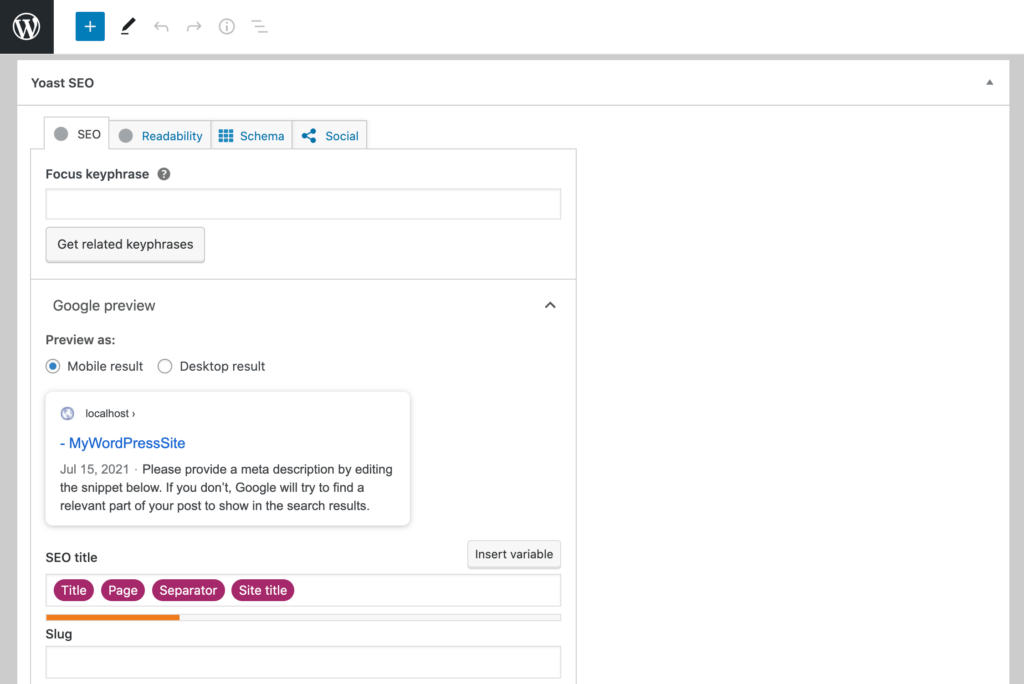
Yoast will then provide actionable advice on how to optimize the web page for the specified keyword or phrase. In this way, Yoast SEO can increase your chances of scoring Google’s coveted number-one spot.
Features:
- Readability and SEO analysis
- Tools to optimize your Google previews
- Automated technical SEO improvements
- Ability to boost your branding with title and meta description templating
- Full control over your site’s breadcrumbs
Pricing: The plugin is free, with a premium version available.
2. Mailchimp
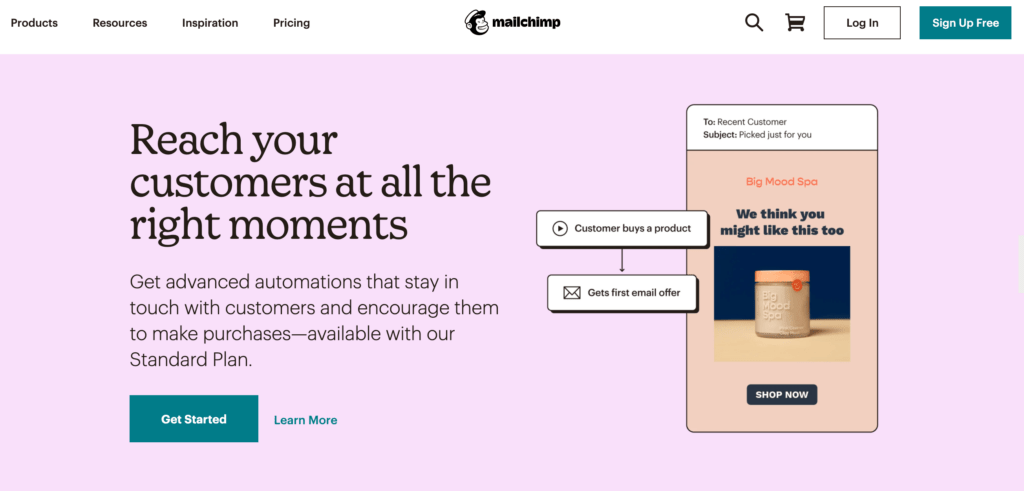
The number of email users is forecast to reach 4.6 billion by 2025, and those people are spending a lot of time in their inboxes.
According to Adobe, the average American spends over five hours a day checking their inboxes. This makes email marketing a powerful way to promote your startup.
You can use Mailchimp to design beautiful, engaging messages using a straightforward drag-and-drop editor. This is ideal if you don’t have access to a graphic designer or a programmer:

You can also use Mailchimp to create automated email campaigns. This can be a life-saver for busy small business owners, who may not have the time to send a personalized message to every contact.
Features:
- Built-in analytics and reporting functionality
- Ability to visualize your entire campaign with the marketing calendar
- Pre-built automations
- Over 100 email templates
Pricing: Various subscriptions are available, including a free plan that’s perfect for small businesses.
3. Google Analytics
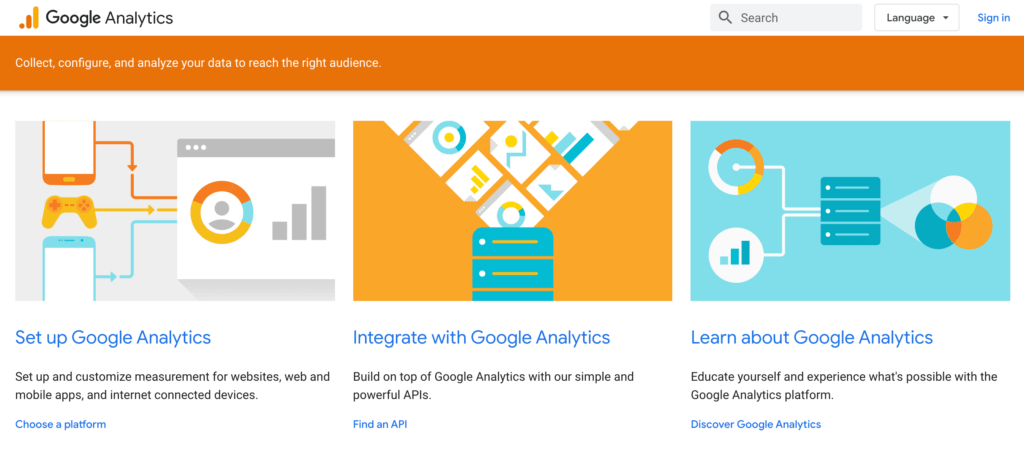
Google Analytics provides detailed insight into the people who are visiting your website. This can be invaluable for understanding your audience and the kind of content that generates the most engagement.
Armed with this information, you can fine-tune your marketing and advertising strategies, and optimize every part of your site to drive conversions:
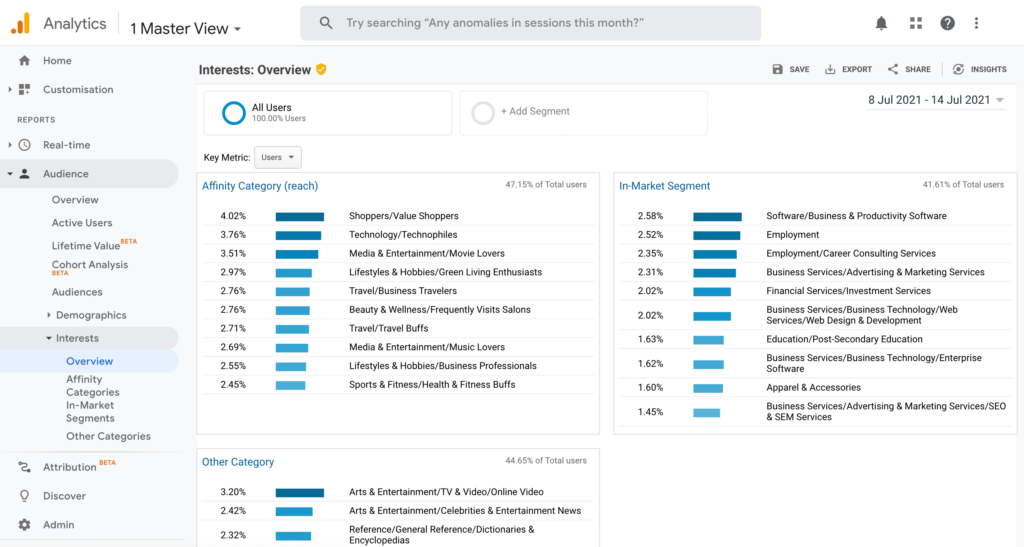
Google Analytics can also reveal how people find your site (for example, via organic search or by following a referral link). You can then focus your efforts on the channels that are proving the most lucrative.
Alternatively, you might decide that it makes more sense to focus on the channels that are currently underperforming.
Features:
- Custom reports
- Event tracking
- Site speed report
- Site search tracking
- Ecommerce tracking
Pricing: The core Google Analytics platform is free. There’s also a premium Analytics 360 subscription available.
4. Buy Now Plus
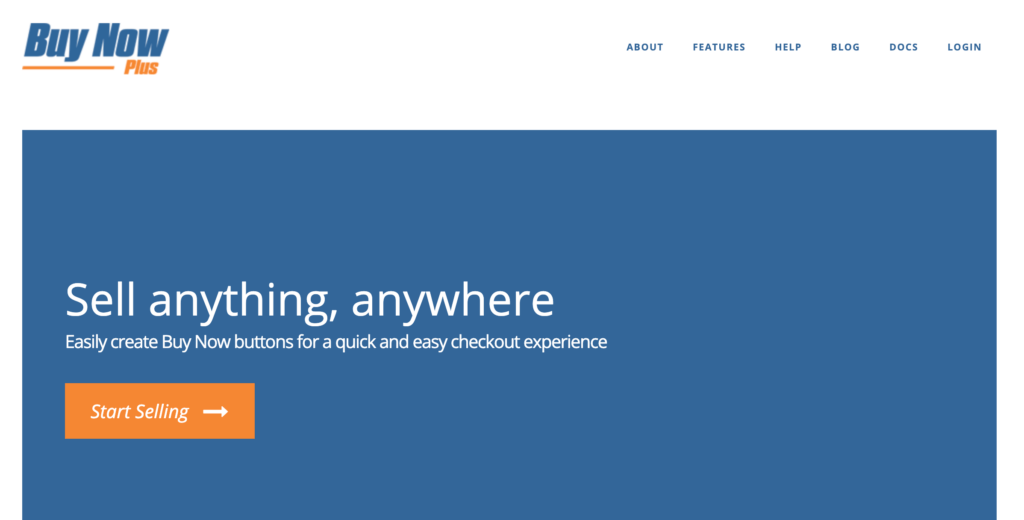
In 2020, worldwide ecommerce sales totaled $4.28 trillion. If you want to tap into this lucrative market, you should aim for a seamless shopping experience.
Buy now buttons can be powerful tools for providing a stress-free purchasing journey and boosting your sales. Today, these simple-but-effective buttons are widely used by some of the biggest companies in the world, including Amazon:
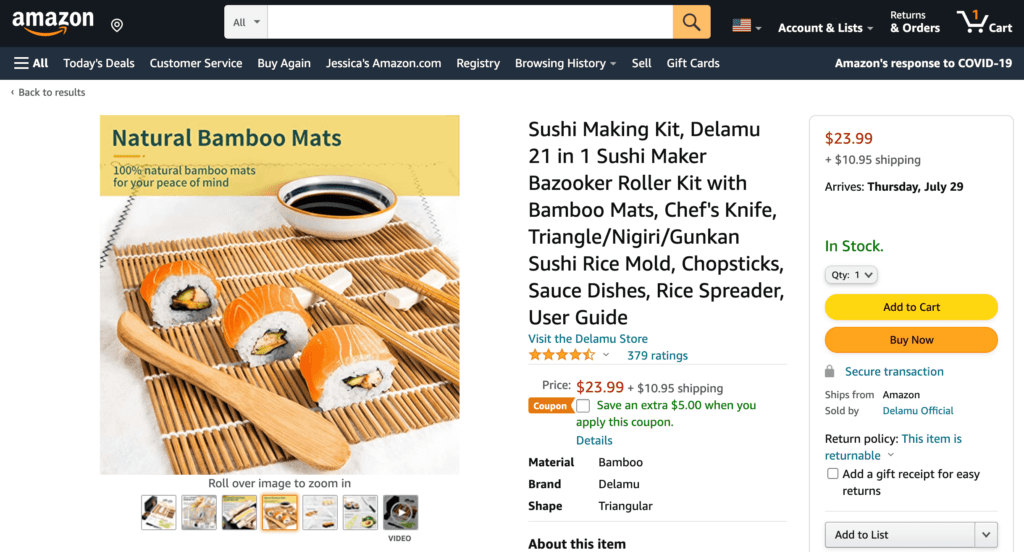
If you want to learn from Amazon’s success, you may want to take a look at Buy Now Plus. You can use our free service to quickly and easily create an Amazon-style buy now button:
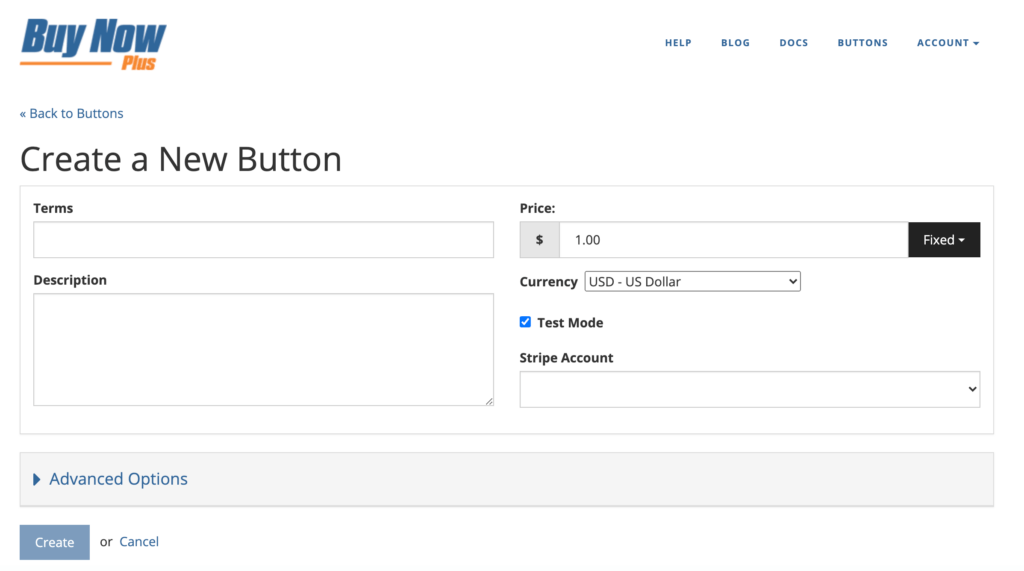
You can then deploy this button across multiple platforms. This includes all of your social media accounts and your email marketing messages.
Features:
- Option to accept credit card payments from anywhere
- Support for recurring payments
- Fully-customizable buttons and checkout
- Built on top of the Stripe payment gateway
Pricing: You can sign up for free. Note that Buy Now Plus charges a minimal 2% fee for each sale.
Conclusion
Starting a new business is never easy. However, the right tools can help you secure those all-important first customers and sales, and set your business on the path to success.
If you’re not sure where to start, let’s quickly recap our top four tools for small businesses that are just starting out:
- Yoast SEO: Make sure your site is appearing in relevant search results with this free WordPress plugin.
- Mailchimp: Use a popular mailing platform with a focus on automation that is perfect for the busy small business owner.
- Google Analytics: Get insight into your audience and learn how to drive more people to your site with this widely-used analytics service.
- Buy Now Plus: Ensure that the purchasing process feels effortless by creating buy now buttons for your website, social media accounts, and email marketing campaigns.
Do you have questions about any of the tools mentioned on this list? Let us know in the comments section below!
If you liked this post, be sure to follow us on Twitter, Facebook, and LinkedIn.

